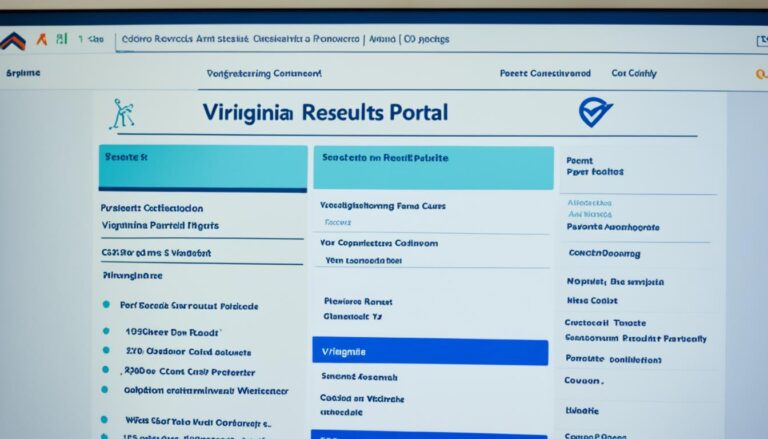The Importance of Parental Self-Care
As a parent, I understand how challenging it can be to juggle the responsibilities of caring for children while also taking care of ourselves. However, I’ve come to realize that parental self-care is not just a luxury – it’s an essential aspect of enhancing family life and personal well-being.
When I prioritize my own physical, mental, and emotional health, I am better equipped to meet the needs of my children and maintain a harmonious family dynamic. Neglecting self-care can lead to burnout, increased stress levels, and an overall poor sense of well-being, which can ultimately hinder my ability to be the best parent I can be.
Key Takeaways:
- Parental self-care is vital for enhancing family life and personal well-being.
- Neglecting self-care can lead to burnout and poor overall well-being.
- When parents prioritize self-care, it sets a positive example for their children.
- Engaging in self-care activities can improve mental and emotional health.
- Taking care of physical health allows parents to have the energy to actively participate in their children’s lives.
The Impact of Parental Self-Care on Children
When parents engage in self-care, it sets a positive example for their children. Children learn the importance of taking care of oneself and the value of self-love and self-worth. Additionally, when parents prioritize their own well-being, they are better able to provide emotional support, patience, and stability for their children. This can lead to improved relationships, better communication, and overall healthier development for children.
Being a role model through practicing self-care teaches children the importance of nurturing their own physical, mental, and emotional needs. They observe their parents setting boundaries, prioritizing self-care activities, and finding balance in their lives. This positive influence can shape children’s attitudes and behaviors, encouraging them to prioritize their own self-care and well-being as they grow.
“Children tend to imitate the behaviors and habits of their parents. By engaging in self-care, parents become role models for their children, showing them the significance of taking care of oneself and the positive impact it can have on overall well-being.”
Furthermore, when parents prioritize self-care, they are better equipped to provide the emotional support and stability that children need. When parents are well-rested, emotionally balanced, and mentally rejuvenated, they can be more patient and present with their children. This creates an environment of emotional security and trust, allowing children to thrive and develop in a positive and nurturing atmosphere.
The Benefits of Parental Self-Care on Children:
- Learn the importance of self-care and self-worth
- Improved relationships and communication
- Enhanced emotional support and stability
- Promotes a positive and nurturing family environment
By prioritizing parental self-care, parents not only improve their own well-being but also create a positive impact on their children’s lives. Children look up to their parents as role models and learn valuable life lessons through their actions. Therefore, taking care of oneself is not only an act of self-love but also a powerful investment in the holistic development of the entire family.
Benefits of Parental Self-Care for Mental and Emotional Health
Engaging in self-care activities can have significant benefits for parents’ mental and emotional health. Taking time for relaxation, hobbies, and self-reflection can reduce stress, anxiety, and depression. It can also increase feelings of happiness, fulfillment, and overall life satisfaction. Prioritizing self-care allows parents to recharge, refocus, and better cope with the challenges and demands of parenting.
When parents neglect their own mental and emotional well-being, it can have detrimental effects not only on themselves but also on their ability to be present and supportive for their children. By regularly practicing self-care, parents can enhance their emotional resilience, reduce negative emotions, and foster a positive mindset.
“Taking care of myself is important not just for me, but also for my children. When I prioritize my mental and emotional well-being, I can show up as a happier, calmer parent and provide the love and support my children need.”
Self-care can involve a variety of activities that promote relaxation, emotional well-being, and a healthy mindset. Some examples include:
- Engaging in regular exercise or physical activity to release endorphins and boost mood.
- Practicing mindfulness and meditation to reduce stress and increase self-awareness.
- Connecting with nature through activities like going for walks, gardening, or spending time in parks.
- Pursuing hobbies and interests that bring joy, creativity, and a sense of accomplishment.
- Cultivating supportive relationships and social connections to promote emotional well-being.
- Setting boundaries and saying no to obligations that cause excessive stress or overwhelm.
Taking the time to care for one’s mental and emotional health is not a selfish act but an essential part of being a parent. When parents prioritize their own well-being, they are better equipped to handle the ups and downs of parenting, provide a stable and nurturing environment for their children, and serve as positive role models for self-care.
The Impact of Self-Care on Parent-Child Relationship
The benefits of parental self-care extend beyond improving mental and emotional health. When parents prioritize self-care, it positively impacts their relationship with their children. By taking care of their own needs, parents can:
- Be more patient and present with their children.
- Model healthy coping mechanisms and stress management.
- Enhance communication and emotional connection with their children.
- Create a harmonious and nurturing family environment.
When parents invest in their own well-being, it has a ripple effect on the entire family. Children learn the importance of self-care and how to prioritize their own mental and emotional health, setting them up for a lifetime of well-being.
Physical Benefits of Parental Self-Care
Parental self-care is not just about prioritizing mental and emotional well-being; it also extends to physical health. Taking care of oneself physically is essential for parents to have the energy and stamina required to keep up with the demands of parenting and to be actively present in their children’s lives.
Engaging in regular exercise is a key component of parental self-care. Exercise not only improves physical health but also boosts energy levels and enhances overall well-being. Whether it’s going for a jog, taking a yoga class, or playing a sport, finding an exercise routine that suits your preferences and schedule can have a positive impact on both your physical health and your ability to be an attentive parent.

Getting enough sleep is another crucial aspect of parental self-care. Adequate rest allows your body to recharge and rejuvenate, ensuring that you wake up feeling refreshed and ready to tackle the day’s challenges. Prioritizing sleep may require establishing a consistent bedtime routine, creating a conducive sleep environment, and practicing relaxation techniques to facilitate a restful night’s sleep.
“Sleep is the golden chain that ties health and our bodies together.” – Thomas Dekker
In addition to exercise and sleep, proper nutrition plays a vital role in parental self-care. Eating a balanced and nutritious diet provides the essential nutrients your body needs to function optimally. Consuming a variety of fruits, vegetables, whole grains, lean proteins, and healthy fats can boost energy levels, improve physical strength, and support overall wellness.
By prioritizing physical self-care, parents can not only enhance their own well-being but also set a positive example for their children. Taking care of one’s physical health shows children the importance of maintaining a healthy lifestyle and instills in them the value of self-care.
Making Time for Physical Self-Care
Finding time for physical self-care as a busy parent can be challenging, but it is essential. Here are a few strategies to help you incorporate physical self-care into your daily routine:
- Schedule exercise sessions: Block off specific times in your calendar dedicated to exercise. Treat these appointments with yourself as non-negotiable.
- Involve your children: Look for ways to incorporate physical activity into family time. Go for walks together, have a dance party in the living room, or play outdoor games.
- Meal planning and prepping: Plan healthy meals ahead of time and prepare them in batches. This saves time and ensures you have nutritious options readily available.
- Delegate household tasks: Share household responsibilities with your partner or other family members. This allows you to free up time for exercise or self-care activities.
Remember, prioritizing physical self-care is not selfish—it is a necessary component of maintaining optimal health and well-being as a parent. By taking care of yourself physically, you are better equipped to meet the demands of parenting and to create a healthy and nurturing environment for your children.
Strategies for Implementing Parental Self-Care
Implementing parental self-care requires effective strategies and good time management. As a parent, I understand the challenges of balancing responsibilities and finding time for myself. Here are some strategies that have helped me prioritize self-care:
- Setting boundaries: Establishing clear boundaries with work, household chores, and other commitments is essential for creating dedicated time for self-care. Communicate your needs with your partner or family members and delegate tasks when necessary.
- Asking for support: Don’t be afraid to ask for help. Seek support from your partner, family, or friends to share the responsibilities of parenting. Having a support system can give you the time and space you need for self-care activities.
- Prioritizing self-care activities: Make a list of self-care activities that bring you joy, relaxation, and fulfillment. Prioritize these activities and schedule them into your routine. Whether it’s reading a book, taking a long bath, or going for a walk, allocate dedicated time for yourself.
- Practicing self-compassion: Be kind and understanding towards yourself. Accept that you deserve self-care and allow yourself to let go of any guilt associated with taking time for yourself. Remember that self-care is not selfish but necessary for your well-being.
By implementing these strategies, parents can create a healthy balance between their responsibilities and self-care. It’s important to remember that taking care of yourself is not only beneficial for your own well-being but also for the well-being of your family.
“Taking care of yourself is not selfish, it’s essential. Prioritizing self-care is one of the best things you can do for yourself and your family.” – Anonymous
Implementing parental self-care requires effective strategies and good time management. By setting boundaries, asking for support, prioritizing self-care activities, and practicing self-compassion, parents can find the time they need to take care of themselves.
| Strategy | Description |
|---|---|
| Setting boundaries | Establish clear boundaries with work, household chores, and commitments to create dedicated time for self-care. |
| Asking for support | Seek help from your partner, family, or friends to share parenting responsibilities and free up time for self-care. |
| Prioritizing self-care activities | Make a list of activities that bring you joy and relaxation, and prioritize them in your schedule. |
| Practicing self-compassion | Be kind to yourself and let go of any guilt associated with taking time for self-care. |

Implementing these strategies will enable you to prioritize parental self-care and enhance your overall well-being.
Overcoming Barriers to Parental Self-Care
Parental self-care is essential for maintaining overall well-being and ensuring effective caregiving. However, many parents face various barriers that hinder their ability to prioritize self-care. Some of these barriers include feelings of guilt, lack of time, and societal expectations.
Guilt: One of the most common barriers to parental self-care is guilt. Parents often feel guilty for taking time for themselves, believing that they should solely focus on their children’s needs. However, it is important to recognize that self-care is not selfish, but necessary for personal well-being and the ability to care for others.
Lack of Time: Busy schedules and numerous responsibilities can make it challenging for parents to find time for self-care activities. However, setting boundaries and prioritizing self-care can help overcome this barrier. It may involve delegating tasks, seeking support from partners or family members, and exploring time management strategies.
Societal Expectations: Society often places unrealistic expectations on parents, creating a perception that they must constantly prioritize their children’s needs above their own. Overcoming this barrier requires a shift in mindset, understanding that parental self-care is crucial for long-term well-being and the ability to provide the best care for children.
“Taking care of oneself is not selfish, but necessary for overall well-being.”
By addressing these barriers and making self-care a priority, parents can reap the benefits of enhanced mental, emotional, and physical health. Letting go of guilt, making time for oneself, and challenging societal norms are essential steps towards achieving a healthier and more balanced life as a parent.
Below is a table highlighting common barriers to parental self-care and strategies for overcoming them:
| Barrier | Strategy for Overcoming |
|---|---|
| Guilt | Recognize the importance of self-care for overall well-being and reframe self-care as necessary, not selfish. |
| Lack of Time | Set boundaries, delegate tasks, seek support from partners or family members, and prioritize self-care activities. |
| Societal Expectations | Challenge societal norms, shift mindset to prioritize self-care alongside caregiving responsibilities. |
By implementing these strategies and overcoming barriers, parents can ensure that they prioritize their own well-being while caring for their children. It is important to remember that parental self-care is not only beneficial for individual parents but also contributes to creating a healthier family dynamic.
Conclusion
In conclusion, parental self-care is essential for the overall well-being of both parents and their children. Prioritizing self-care allows parents to enhance their physical, mental, and emotional health, which in turn positively impacts family dynamics and relationships.
By taking the time to care for themselves, parents can improve their physical health, increase energy levels, and have the stamina to keep up with the demands of parenting. Engaging in self-care activities also has significant mental and emotional benefits, reducing stress, anxiety, and depression, and increasing feelings of happiness and life satisfaction.
Furthermore, parental self-care sets a positive example for children, teaching them the importance of self-care, self-love, and self-worth. It enables parents to provide better emotional support, patience, and stability to their children, leading to improved relationships, communication, and overall healthier development.
It is crucial for parents to recognize that prioritizing self-care is not selfish, but necessary for creating a harmonious and healthy family environment. By implementing effective strategies, managing time wisely, and overcoming barriers like guilt and societal expectations, parents can successfully incorporate self-care into their daily lives, ultimately benefiting themselves and their families.
FAQ
Why is parental self-care important?
Parental self-care is crucial for enhancing family life and personal well-being. It allows parents to effectively care for their children and prevents burnout and stress.
How does parental self-care impact children?
When parents engage in self-care, they set a positive example for their children and teach them the importance of self-care and self-worth. It also leads to improved relationships and healthier development for children.
What are the benefits of parental self-care for mental and emotional health?
Engaging in self-care activities can reduce stress, anxiety, and depression while increasing happiness, fulfillment, and overall life satisfaction.
How does parental self-care benefit physical health?
Prioritizing physical health through exercise, sleep, and nutritious meals improves energy levels, physical strength, and overall well-being.
What strategies can parents implement to prioritize self-care?
Parents can set boundaries, ask for support, prioritize self-care activities, and practice self-compassion. Effective time management is also important.
What barriers do parents face when it comes to self-care?
Feelings of guilt, lack of time, and societal expectations can pose challenges to prioritizing self-care. Overcoming these barriers requires a mindset shift and seeking support from others.
What is the conclusion regarding parental self-care?
Parental self-care is of utmost importance for the well-being of both parents and their children. By prioritizing self-care, parents enhance their physical, mental, and emotional health, positively impacting family dynamics and relationships.
Source Links
- https://www.wsls.com/news/local/2024/01/16/tasty-tuesday-local-co-owner-of-rnd-coffee-brewing-up-success-with-multiple-tv-appearances/
- https://kansaspublicradio.org/npr-news/2024-01-16/im-not-safe-here-schools-ignore-federal-rules-on-restraint-and-seclusion
- https://www.politifact.com/article/2024/jan/16/will-curbing-social-media-help-kids-mental-health/






